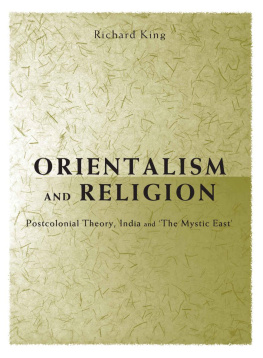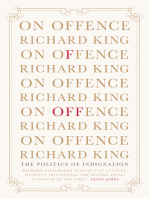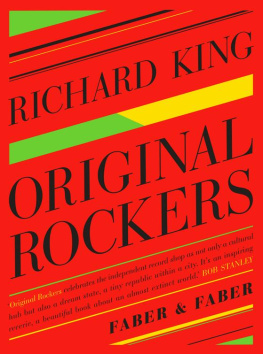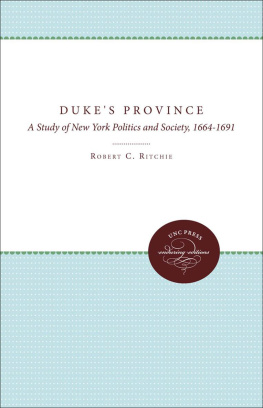Copyright 1972 The University of North Carolina Press
All rights reserved
No part of this hook may be reproduced or utilized in any form or by any means, electronic or mechanical, including photocopying and recording, or by any information storage and retrieval system, without permission in writing from the publisher. The Association of American University Presses Resolution on Permissions constitutes the only exception to this prohibition.
Manufactured in the United States of America
ISBN 0-8078-1187-4
Library of Congress Catalog Card Number 73-174785
INTRODUCTION
The student of American intellectual history is plagued by the relationship of America to European thought. If one focuses exclusively on American thought, then a study tends toward the parochial. Conversely, if one treats American thought as an inferior derivative of European sources, one misses the unique features of the American experience and thus tries to fit themes of our intellectual development into theoretical structures formulated in significantly different historical and cultural contexts.
This study by no means escapes this dilemma. Its focus is on the way the thought of Sigmund Freud, no friend of America, has been used by three radical social theorists in the quarter century since the end of World War II. The temptation is thus to focus upon Freud and not the American thinkers who made use of his insights. Yet common sense and even a slight knowledge of the way ideas are transformed by diffusion through space and time reveals that there are many Freuds and many ways his teachings can be applied to social analysis, an area of concern in which Freud was only tangentially interested. The problem, however, does not end there. A minor, more submerged theme of this study is the fate of orthodox Marxist theory in postwar America and the effort to formulate a radical social theory, adequate to deal with unprecedented social and cultural developments, upon the ruins of the Marxist ideology which many considered to be morally and intellectually otiose by the middle 1940s.
There is finally American thought itself. It can be argued quite convincingly that American thought goes astray when it depends too closely upon European intellectual systems of whatever variety. Particularly since World War II one could maintain that, far from being a satellite caught in the orbit of European thought and experience, America has finally assumed the role which Gertrude Stein once attributed to her of being the oldest modern western nation. The possibility of general affluence, the emergence of a society given shape by bureaucratic and technological structures, the development of a far-reaching and all pervasive communication nexus, the political and cultural importance of youth have all become givens which Europeans are just now beginning to see emerging on the continent. Thus the most pertinent social theory concerned with advanced industrial societies should be detectable in the American rather than the European context. Indeed, another theme is that in the first quarter of the century, American social thinkersLester Ward, Thorstein Veblen, Randolph Bourne, John Deweywere handling problems that would emerge with much more urgency after World War II and thus set the terms for much of the analysis that we will be examining here.
Several recent studies have touched upon the theme of radical Freudianism and, though I deal with them at greater length in the main body of this work, a word or two about each of them is in order. The first and most important of these studies is Philip Rieffs imaginatively conceived The Triumph of the Therapeutic (1966). In a sense my study is an application of some of Rieffs ideas to the particular context of American social and cultural thought. Paul Robinsons The Freudian Left (1969) appeared when I was nearly finished with the first draft of my study. Though Robinson deals with Wilhelm Reich and Herbert Marcuse specifically (along with Geza Roheim), he takes them to be European thinkers primarily and does not concern himself with their place in or influence upon American thought. I do disagree with Robinsons rather uncritical discussion of Marcuse, but The Freudian Left is thorough and often incisive and thus of much use. The Making of a Counter Culture (1969) by Theodore Roszak appeared shortly after Robinsons work. Roszak devotes much attention to Paul Goodman as well as to Marcuse and Norman Brown as intellectual gurus of todays cultural dissidents. His chapter on Brown and Marcuse is often quite good, but his treatment of Goodman remains generally on the surface. In general, Roszak slights the development of each mans thought; and the implication is that the main values and themes of the counter culture have emerged almost ex nihilo within the last decade.
Readers will inevitably wonder about the omission of certain thinkers. I have chosen not to deal with Erich Fromm because he is, quite simply, not a sexual radical. As Goodman and Marcuse make clear, and as Fromm would admit, he abandoned Freuds libido theory quite early and generally plays down the importance of sexuality in individual and social analysis. A stronger case could be made for the inclusion of Norman Mailer, since he was profoundly influenced by Wilhelm Reich, the real father of the effort to combine doctrines of sexual and social liberation. Whatever Mailers strengths as a participant-observer of sexuality in our society, and I think they are considerable, he is not a systematic thinker, but primarily a novelist and imaginative writer and thus does not receive much attention here.
I was not interested in writing a history of psychoanalytic thought in post-World War II America and for that reason have not dealt with Erik Erikson, psychohistorians Robert Jay Lifton and Kenneth Kenniston, or the so-called Third Force psychology represented by Abraham Maslow and Henry Murray. (I do deal with Gestalt therapy, but only in reference to the development of Paul Goodmans thought.) Each of these approaches quite obviously takes off from Freud, but in doing so lacks the sexual and/or the radical component which is my central concern.
My main interest is in ideas. For that reason I have avoided as much as possible a psychoanalysis of the thinkers in question. Such a study would possibly be fruitful; Marcuse and Brown, for instance, came relatively late and rather surprisingly to Freud from intellectual backgrounds having little to do with psychoanalytic interpretations of social and cultural reality. Nor have I gone into great detail concerning the sociological context within which these men formed their ideas or which proved receptive to their work. A major weakness of intellectual history is that it tends to degenerate into a catalogue of names and ideas linked by a vague something called influence. Where tracing influences should be suggestive, it is too often exhaustive. Everything is discussed except the ideas themselves, their elaboration, and their validity. Thus much of my study is taken up with the development of certain ideas by certain thinkers. I have tried to be critical without nit-picking; and I have hopefully avoided excessive influence-mongering.
One might also wonder about the absence of any sort of theoretical discussion of race or black radicalism. As far as I know, few social critics have dealt with such problems as racism or racial identity on a theoretical level. A white psychiatrist, Joel Kovel, has written an interesting study, White Racism






